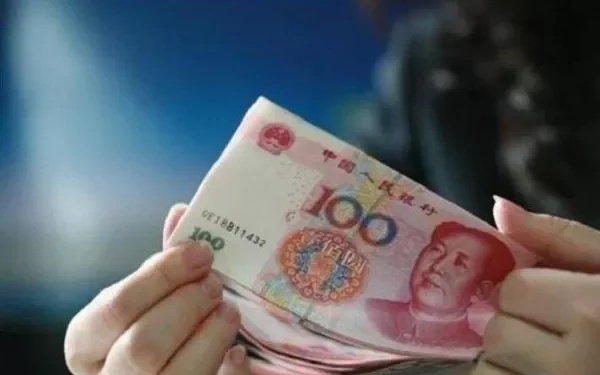Understanding the value of one currency in terms of another is crucial in today’s global economy. For individuals and businesses alike, knowing the current exchange rate, the factors influencing these rates, and the broader economic implications is essential. This article delves into these aspects with a specific focus on the conversion of 15 Chinese Yuan (CNY) to Singapore Dollars (SGD).
Current Exchange Rate
As of May 2024, the exchange rate between the Chinese Yuan (CNY) and the Singapore Dollar (SGD) is approximately 1 CNY to 0.19 SGD. Therefore, 15 Yuan would be equivalent to approximately 2.85 SGD. However, exchange rates are dynamic and can fluctuate due to various economic factors. To get the most accurate and up-to-date exchange rate, it is advisable to check reliable financial news sources or financial institution websites.
Conversion Calculation
The process of converting 15 Yuan to SGD is straightforward. Using the current exchange rate of 1 CNY = 0.19 SGD, the calculation would be:
15 CNY×0.19 SGD/CNY=2.85 SGD
This simple multiplication gives you the direct equivalent in Singapore Dollars. It is essential for travelers, investors, and international businesses to understand how to perform such calculations to manage their finances effectively.
Factors Influencing Exchange Rates
Several factors influence exchange rates between currencies, including:
Interest Rates: Central banks control interest rates to manage economic growth and inflation. Higher interest rates in a country typically attract foreign capital, leading to an appreciation of its currency.
Inflation Rates: Lower inflation rates in a country relative to others can lead to a stronger currency, as its purchasing power increases relative to other currencies.
Political Stability and Economic Performance: Countries with stable political environments and strong economic performance tend to attract more foreign investment, strengthening their currencies.
Speculation: Currency speculation by traders can cause significant short-term fluctuations in exchange rates. Speculative activities are driven by predictions of future movements in exchange rates.
Balance of Trade: A country with a large trade surplus (exporting more than it imports) will generally have a stronger currency, as foreign buyers convert their currency to pay for the country’s goods and services.
Public Debt: Countries with large public debts are less attractive to foreign investors due to the risk of inflation and default, leading to a depreciation of the currency.
Economic Indicators: Data such as GDP growth, unemployment rates, and industrial production can influence investor confidence and affect currency values.
See Also:What Is 20 Yuan to Peso?
Forecast and Trends
Predicting future exchange rates involves analyzing current economic data, market trends, and geopolitical events. Analysts use various models to forecast exchange rate movements, but these predictions can be highly uncertain due to the complex and interrelated factors involved.
Currently, the Chinese Yuan and Singapore Dollar are influenced by the following trends:
China’s Economic Growth: China’s economic policies, trade relationships, and domestic economic conditions significantly impact the Yuan’s strength.
Singapore’s Financial Stability: As a global financial hub, Singapore’s economic health, driven by its robust financial sector, influences the SGD.
US-China Relations: Geopolitical tensions between the US and China can affect investor confidence and, consequently, the value of the Yuan. These impacts can indirectly influence the SGD due to regional economic ties.
Global Economic Recovery: Post-pandemic economic recovery rates and the management of inflation pressures globally play a crucial role in determining exchange rates.
Financial Advice
For individuals and businesses dealing with foreign currencies, staying informed about current and predicted exchange rates is crucial. Here are some financial tips:
Monitor Exchange Rates: Regularly check exchange rates from reliable financial news sources or financial institutions.
Hedging: Consider using hedging strategies to protect against unfavorable exchange rate movements. Tools such as forward contracts and options can help manage currency risk.
Diversify Investments: Diversifying investments across different currencies can mitigate risks associated with currency fluctuations.
Use Trusted Financial Services: Utilize reputable financial services for currency conversion to ensure competitive rates and avoid unnecessary fees.
Stay Informed About Economic Indicators: Keep an eye on key economic indicators that can signal potential currency movements.
Legal and Tax Implications
Currency exchange transactions can have legal and tax implications that vary by jurisdiction:
Reporting Requirements: Some countries require individuals and businesses to report foreign exchange transactions for tax purposes.
Taxation on Gains: Profits from currency exchange can be subject to capital gains tax. It’s essential to understand the tax laws in your country regarding such gains.
Regulatory Compliance: Ensure compliance with all regulatory requirements related to currency exchange, especially for large transactions or business operations.
See Also:What is RMB to CHF?
Consulting with a financial advisor or tax professional can provide tailored advice based on your specific circumstances and ensure adherence to all legal obligations.
Economic Indicators
Economic indicators are statistical measures that reflect the economic performance of a country. Key indicators influencing exchange rates include:
Gross Domestic Product (GDP): Measures the total value of goods and services produced in a country. A growing GDP indicates a strong economy, which can strengthen the currency.
Inflation Rate: The rate at which the general level of prices for goods and services is rising. Lower inflation typically strengthens a currency.
Unemployment Rate: Indicates the percentage of the labor force that is unemployed. Lower unemployment rates suggest a healthier economy, positively impacting the currency.
Interest Rates: Set by central banks, interest rates influence economic activity and inflation, affecting currency strength.
Trade Balance: The difference between a country’s exports and imports. A positive trade balance (surplus) can boost the currency.
Global Market Impact
The exchange rate between CNY and SGD also reflects broader global market dynamics. Key factors include:
Global Trade: China and Singapore are significant players in global trade. Fluctuations in trade policies, tariffs, and global demand impact their currencies.
Foreign Direct Investment (FDI): High levels of FDI into a country strengthen its currency as foreign investors need to purchase the local currency to invest.
Geopolitical Events: Events such as elections, wars, and treaties can cause volatility in exchange rates due to uncertainty and changing investor sentiments.
Commodity Prices: Prices of commodities like oil and gold can impact currencies, especially for countries that are major producers or consumers of these commodities.
Conclusion
Understanding the conversion of 15 Yuan to SGD involves more than just knowing the current exchange rate. It requires an appreciation of the economic factors influencing these rates, the broader market trends, and the potential legal and financial implications. Staying informed and adopting sound financial practices can help individuals and businesses navigate the complexities of currency exchange effectively.
For anyone dealing with multiple currencies, whether for travel, investment, or international business, keeping abreast of the latest developments and seeking professional advice when necessary can make a significant difference in financial outcomes. As global economic conditions continue to evolve, maintaining a proactive approach to understanding and managing currency risks remains essential.
Related Topics:


























